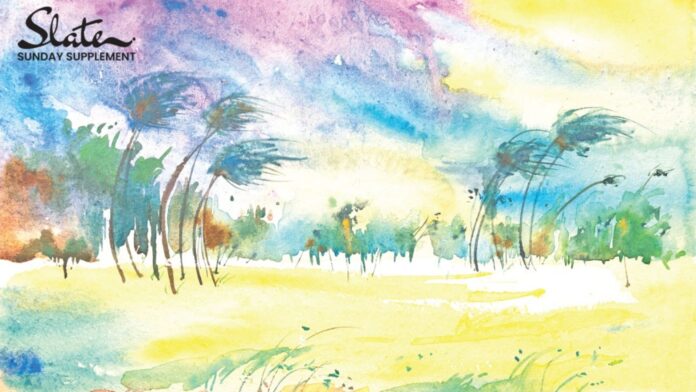By Saiñkupar Syngkli | NONGPOH
On 14 April 2022, a thunderstorm hit Ri Bhoi district and brought it with hailstorms, some the size of golf balls. It damaged cars, houses, offices, roadside sheds; it pock-marked the already weak tar of Bhoi’s poorly constructed roads and damaged electricity posts, forcing many residents to live without electricity for over three days, and in areas like Mawlasnai, almost a week.
From students to homemakers to business people, the freak storms of April have damaged lives and livelihoods, paralysing households and offices with power outages, intermittent lapses in the supply of electricity and simply a bad time.
Banbatmame Lapang, who is part of a larger group of students who rely on regular private tuition, says, “I felt like Abraham Lincoln sitting under a candle to study”. Haphi Nongtri, a young girl, says the power outages have affected her studies as she is forced to help her mother with cooking using firewood (the family, even before the storms, had no LPG connexion, relying on an electric stove). Evansius Mariang is a student reading for a bachelor of arts. He says, “I can never submit my assignments on time because I don’t have a mobile battery. When the electricity goes out, then even the network dies in my area”.
Mirin Shadap, a homemaker, says, “Instead of spending two hours cooking like most days, I spend double the time because there is no electricity”. Ibasuk, another homemaker, says that with motors left lifeless without power, using water has become a serious financial decision, forcing the family to save every drop of water remaining in tanks.
Pun Syiem is the proprietor of a customer service centre in Nongpoh. For three days after the first storm, he could not work and the losses have been insurmountable so far. Syiem cannot use generators because of the hike in petrol. Customers come to his shop and leave without service, whilst Syiem is left without his earnings. Like him, Bung Diengdoh, a furniture shop owner, says, “We need electricity to complete our work faster. It easier for our job. But this without electricity in the district, we had to simply close our workshop”.
Sok Marbaniang, an elderly gentleman, however, sees a silver lining to the literal dark clouds hanging over Ri Bhoi. “It’s nice to see children playing outside when there is no electricity. It reminds me of our golden days when I was a child. Sometimes I feel we should not have electricity sometimes so our people can come out to play and enjoy the outside world. Children spend most of their time on mobile phones, television, and laptops. But all of these become useless once the electricity goes away”. Marbaniang says the storm was the first in a long time that he saw his own grandson playing outside with his friends. “It made me happy”, he says.
The storm somehow developed the social lives of families, as children petered out of homes to play in the rain, and collect ice balls, whilst adults huddled to watch the storm. Yet, the losses to property and livelihoods cannot be understated. For those who live day by day, with little bread for the next day, the storms have been painful and the poor state of electricity supply has been worse – the aftereffects of the storm.
When I stood at the petrol station at Umlyngkdait, to my surprise, I saw a long line of people waiting, a striking reminder of the pains of food and fuel shortages during the early waves of the pandemic. Dari Marweiñ, a young acquaintance, says it is, in some sense, a great experience with both “good” and “bad” to it.
If the government cannot provide electricity because of a mere storm, at least it has given us memories.


